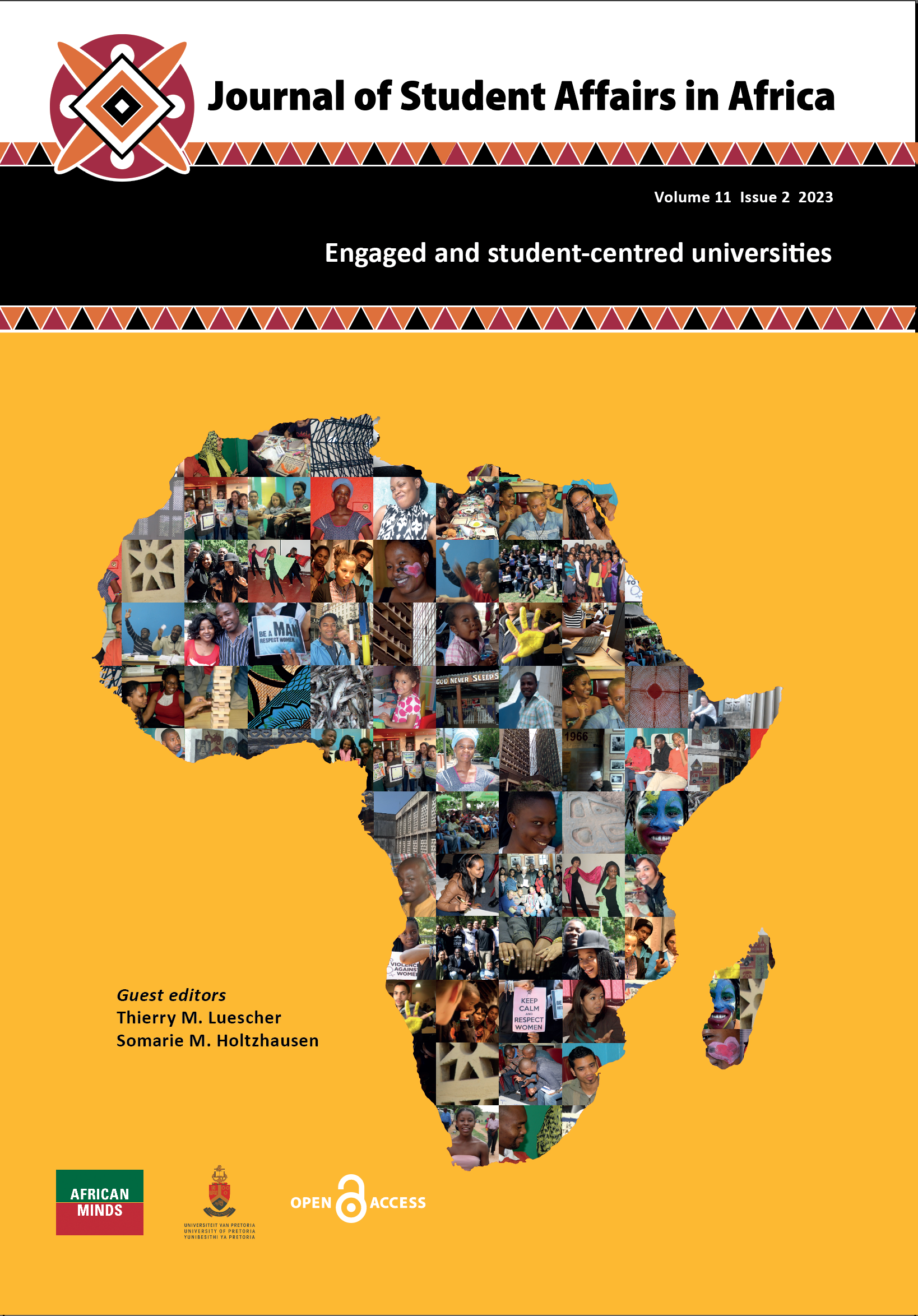Graduate transitions in Africa: Understanding strategies of livelihood generation for universities to better support students
DOI:
https://doi.org/10.24085/jsaa.v11i2.4915Abstract
Graduate transitions and pathways do not naturally involve moving smoothly or sequentially
from education into the world of work. Instead university graduates move through employment,
entrepreneurship, unemployment and continued further education as they generate livelihoods. For
African universities to be student-centred, with a focus on student development and success, the
nature of these livelihood pathways must be examined in order to provide appropriate and relevant
training and transition support. This article uses quantitative and qualitative data from African
graduates who received a scholarship to complete their degrees at 21 universities (nine in Africa and
12 from other countries). Their post-graduation pathways are mapped and explored to determine
how graduates generate livelihoods. The findings show that a minority of African graduates move
smoothly from education into employment, and that for the majority, pathways are multidimensional
and complex. While some move into the world of work with ease, most develop portfolios of income.
By developing initiatives based on these findings, universities can help graduates navigate the
challenges of income diversification, provide them with the necessary skills and resources, and foster
a supportive ecosystem that encourages entrepreneurial thinking and diversified career paths.
Downloads
Published
Issue
Section
License
Copyright (c) 2023 Andrea Juan, Adam Cooper, Vuyiswa Mathambo, Nozuko Lawana, Nokhetho Mhlanga, James Jowi

This work is licensed under a Creative Commons Attribution-NonCommercial-ShareAlike 4.0 International License.
Authors who publish with this journal agree to the following terms:
Authors retain copyright and grant the journal right of first publication with the work simultaneously licensed under the Creative Commons Attribution Share-alike 4.0 International License that allows others to share the work with an acknowledgement of the work's authorship and initial publication in this journal.
Authors are able to enter into separate, additional contractual arrangements for the non-exclusive distribution of the journal's published version of the work (e.g., post it to an institutional repository or publish it in a book), with an acknowledgement of its initial publication in this journal.
Authors are permitted and encouraged to post their work online (e.g., in institutional repositories or on their website) prior to and during the submission process, as it can lead to productive exchanges, as well as earlier and greater citation of published work (See: The Effect of Open Access).


